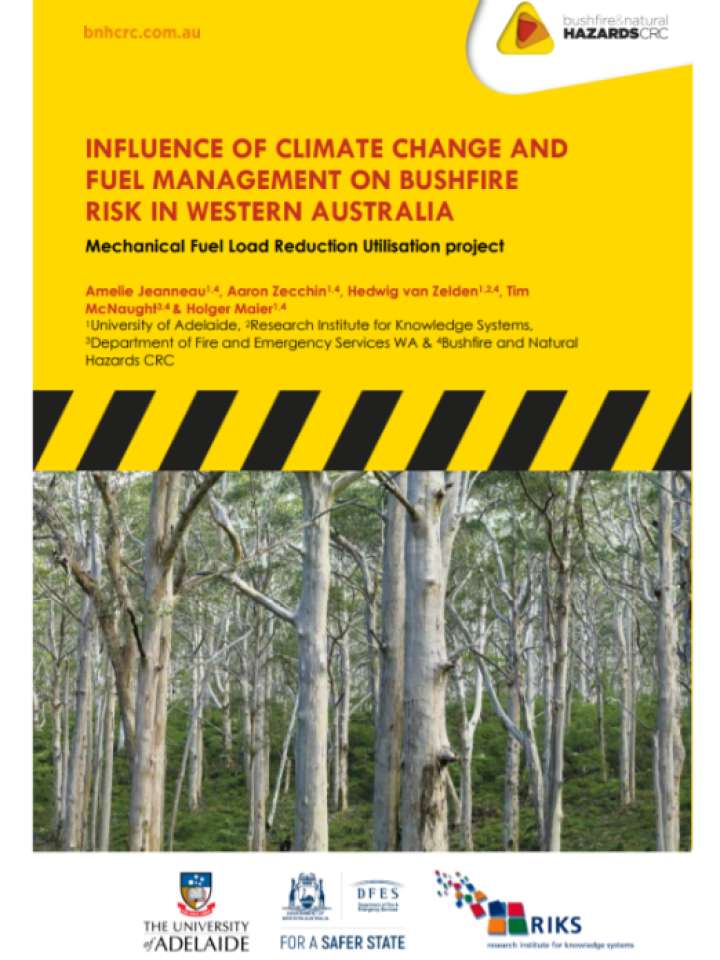Influence of climate change and fuel management on bushfire risk in Western Australia
This report presents the results of an analysis combining the outputs from stakeholder consultation with those from the Unified Natural Hazard Risk Mitigation Exploratory Decision Support System (UNHaRMED) to quantify increases in bushfire risk due to different population growth and climate change scenarios in four areas of emerging bushfire risk in Western Australia. Bushfire risk is likely to increase in the future due to the combined impacts of climate change and urban sprawl.
The report indicates that increases in bushfire risks from 2018 to 2050 range between 23.9% and 59.7% (in terms of average annual loss), depending on the scenario and case study area considered. UNHaRMED is also used to assess the potential of mitigating these increases in risk via fuel load reduction. Results indicate that fuel management can reduce future bushfire risk and that the decline in risk is positively correlated with an increase in the proportion of the landscape treated. However, the results suggest that in cases where fuel management does significantly reduce the risk of impacts posed by bushfires, this reduction was much less than an increase in risk from climate change. It should be noted that this project focused on the rural-urban interface in alignment with the existing Bushfire Risk Management Planning approach adopted in Western Australia. As such, landscape-scale mitigation was not considered in this particular project, but would be an important consideration in future research.
Explore further
